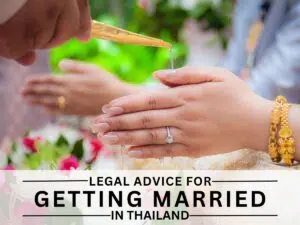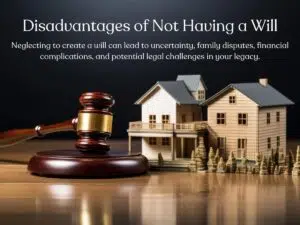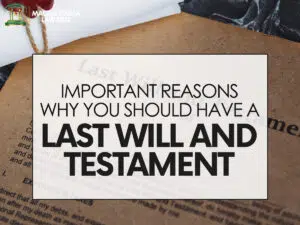Here are some common Last Will and Testament Myths and Misconceptions:
I don’t need a Will because I am legally married, so all my assets will automatically go to my spouse when I pass away.
This is not necessarily the case. In Thailand, when a person dies without a Last Will and Testament, the intestate’s assets are then distributed according to the law. There are six classes of statutory heirs in Thailand, which entitles each class to inherit in the following order:
- Descendants
- Parents
- Brothers and Sisters of full blood
- Brothers and Sisters of half blood
- Grandfathers and Grandmothers
- Uncles and Aunts
The right of a surviving spouse to partake in the inheritance of a deceased spouse is inherent in marital status. Ordinances granting such rights to a survivor make the spouse a statutory heir. Before any distribution of the estate to relatives, the spouse, if any, will get half of the estate (Sin Somros), and the remainder will be allocated accordingly.
Separated spouses do not lose the ability to inherit from one another as long as divorce is not declared between them.
Making a Will is for the elderly or people with health problems.
Making a Will is for everyone above the age of 15 who is not mentally incompetent. If you have significant assets, you and your family should create a Last Will and Testament. This is true regardless of your age or present health condition.
A beneficiary can also be a witness to my Will.
Anyone who will benefit from or inherit any asset under your will must not be a witness to it. According to the law, any witness to the will, or even the person drafting the will, as well as their spouses, must not be a beneficiary of your will. This is to prevent possible conflicts in the future.
Witnesses don’t need to read the entire will document to sign it; they only need to be able to confirm that the document exists and that they’ve signed it in front of you without coercion.
I can only bequeath my assets to my Statutory Heirs.
You can appoint whomever you wish to be the beneficiary of the Will, not just the statutory heirs. It can be any person, such as a friend or a colleague. You can as well consider a juristic person, such as an organization, foundation, school, or temple.
I can bequeath the house that my Thai spouse and I acquired after our marriage to my beneficiary.
Marital assets acquired after the official marriage registration are deemed joint assets, or Sinsomrod. Both spouses have equal rights to asset ownership. Therefore, in such a case, you can only bequeath 50% of the asset.
My Executor can immediately manage all my assets in my Last Will and Testament after my death.
According to Thai law, even with or without the Will, the Executor must receive the Court Order first. The Executor must submit the petition to the Court in order to have the Court appoint him or her as the official Executor. After receiving the Court Order, the Executor can use this document to execute the wishes expressed in your Will.
I can just bequeath my assets to one beneficiary and force some instruction for him/her to manage the assets according to my wishes.
When you die, your assets become the beneficiary’s assets. As a result, your beneficiary will inherit all legal rights. He or she will then have complete control over how the assets are managed, including the ability to mortgage, allocate, or profit from them. However, you can designate a limitation on asset sale or transfer of a specific beneficiary to another party, which will be active for a limited or infinite period of time according on the testator’s intentions.
I need to destroy all the previous Wills that I have made in the past after making a new one.
The most recent Last Will and Testament usually takes precedence over any earlier ones. That is, regardless of whether they are destroyed or lost, the effectiveness of all previous wills will be terminated by law.









